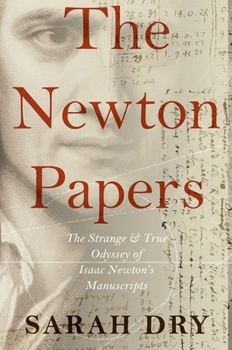Newton Papers: The Strange and True Odyssey of Isaac Newton's Manuscripts
Select Format
Select Condition 
Book Overview
When Isaac Newton died in 1727 without a will, he left behind a wealth of papers that, when examined, gave his followers and his family a deep sense of unease. Some of what they contained was wildly heretical and alchemically obsessed, hinting at a Newton altogether stranger and less palatable than the one enshrined in Westminster Abbey as the paragon of English rationality. These manuscripts had the potential to undermine not merely Newton's reputation,...
Format:Hardcover
Language:English
ISBN:0199951047
ISBN13:9780199951048
Release Date:May 2014
Publisher:OUP Us
Length:256 Pages
Weight:1.08 lbs.
Dimensions:1.0" x 6.1" x 9.3"
Customer Reviews
0 rating





